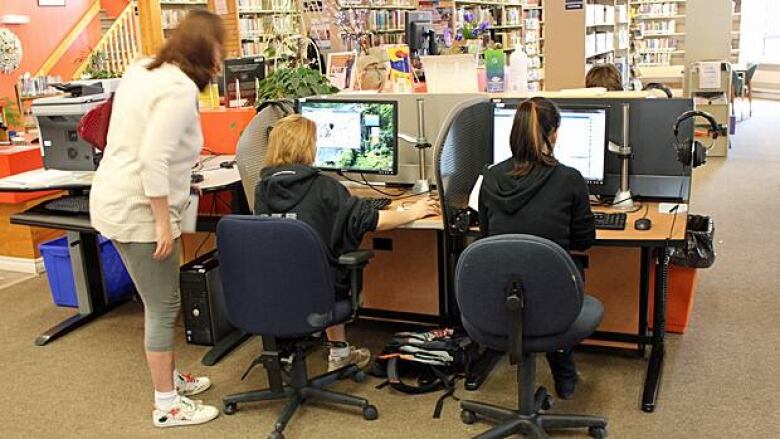Federal cuts could mean end of free internet service
Community Access Program serves many rural areas of Newfoundland and Labrador

Free high-speed internet could soon be gone from many rural communities, as federal cutbacks throw the future of the Community Access Program in doubt.
The program provides internet service to the public at nearly 150 locations in Newfoundland and Labrador alone.
But the Harper government is cutting the money it puts into the program.

"We know that sometimes people don't have the money to avail of internet or computers," said Matt Tavenor, who handles IT support at the 33 libraries in central Newfoundland which provide internet services through the program.
"In some communities there is nowhere else, we are the only outlet for those services."
CAP allows people to go online, email, scan, print, and send faxes for free.
Liberal MP Scott Simms says the cuts are frustrating. There are still 60 communities in his riding without high-speed internet.
"Very difficult. It's downright impossible to download forms, large photos, videosthis is going to be a huge problem."
Simms says the cuts don't make sense when Ottawa is encouraging so many people to go online for services.
The MP says lots of people who don't have computers show up at his office, looking for help with online government services everything from getting a commercial fishing licence to applying for Old Age Security or a passport.
Ottawa is cutting the $550,000 it puts into the program each year. The provincial government pays the other $400,000.
The province says it's too early to say whether it'll pick up the federal costs to keep the program going.












_(720p).jpg)


 OFFICIAL HD MUSIC VIDEO.jpg)
.jpg)



























































































